![]()
In today’s ever-evolving geopolitical landscape, the demand for safety and defence measures in combat and civilian spaces is at an all-time high. However, the emergence of newer opportunities in the defence space gave rise to more stringent regulations, which started hindering defence contractors from meeting their delivery deadlines for manufacturing equipment. At the same time, to drive the movement toward greener operations, vendors in the industry are also facing issues with designing products that can be manufactured using eco-friendly materials, are lighter, and produce a lower carbon footprint. Addressing these needs with its ability to offer end-to-end manufacturing capabilities alongside a range of unique, lightweight, and robust composite solutions is England-based Permali.
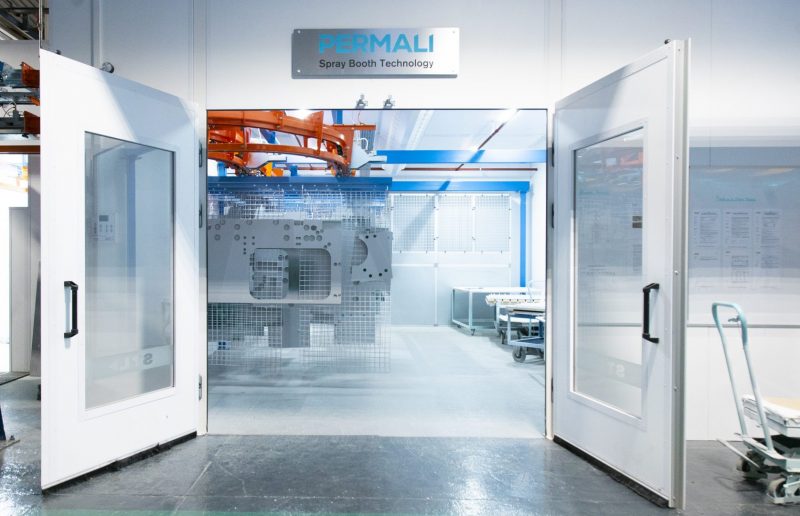
Above: Permali’s Spray Paint Coating Booth
The company’s comprehensive portfolio is backed by its in-house experts from the realms of design, material science, product development, and others, which ensures that all of a client’s needs are always met. And as a way to bridge the gap between the defence market and rising environmental laws, Permali provides a suite of composite materials that comply with the flammability, smoke, and toxic fumes emission regulations. “From design to final product delivery, we are always ready to deliver on the specifications of a client with our comprehensive in-house processing capabilities and team expertise,” says Fraser Rankin, Sales & Marketing Director at Permali. Founded in 1937, Permali was initially a contractor in the high voltage and tooling industry, providing phenolic resin-based high-pressure lamination and coating services. This work with phenolic solutions-built expertise for Permali that it leveraged to penetrate the aerospace market where phenolic resin-based components were being designed and developed for a growing number of applications and are today a mainstay.
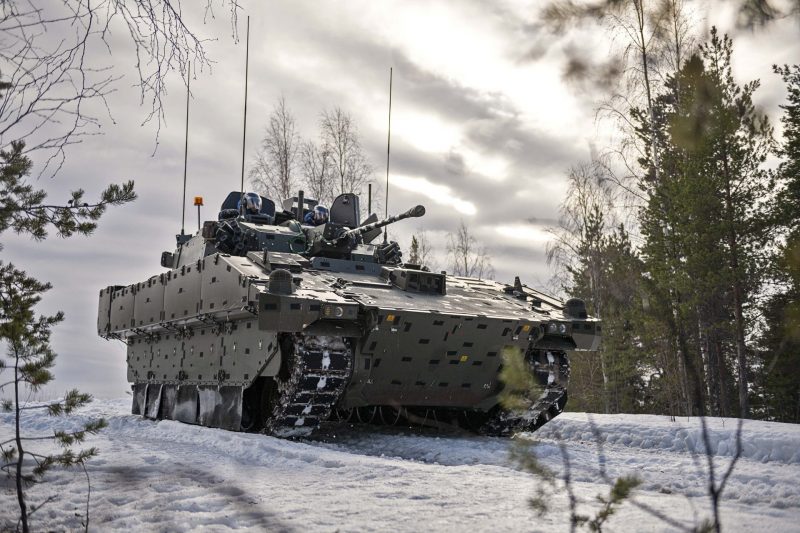
Above: The Ajax armoured fighting vehicle which Permali is actively involved with
Over the decades, the company expanded from covering core defence sectors to several commercial and civil market sectors, offering composite solutions and eventually branching into TPU solutions. Today, Permali is a world leader in manufacturing composite materials and bespoke solutions for aerospace, defence, rail, marine, and healthcare arenas. And at the heart of this success is the company’s 10,500 sq. m. factory that boasts next-gen pressing, moulding, assemble, CNC machining facilities and dedicated wings for CAD design, inspection, and R&D. From a portfolio standpoint, Permali manufactures Permaglass composite materials in the form of laminated sheets, mouldings, and sandwich panels. In terms of processing prowess, the company prides itself in its impregnation capabilities, which has allowed it to produce products for a wide range of applications in multiple markets. “We have invested significant capital in modernizing our impregnation wing to help expand our ability to manufacture better, lighter, and more affordable products,” adds Rankin. Apart from this, Permali’s single-site processing capabilities include mechanical and flammability testing, CAD/CAM design and manufacturing, rapid prototyping (3D printing), resin mixing, high pressure pressing/moulding, 5-axis precision machining, mechanical and bonding assembly sections, all backed by an AS9100 Rev D quality accreditation.
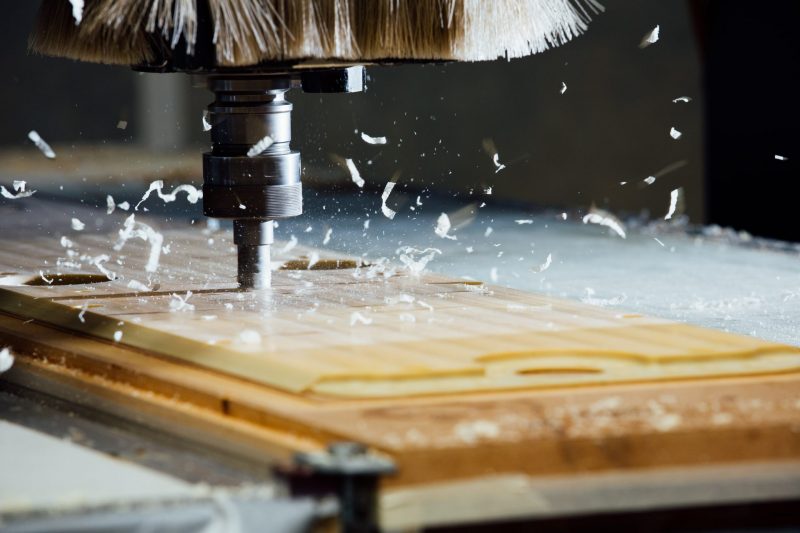
Above: Permali has both 3 and 5-axis CNC Routers and Water Jet Cutters
On the other hand, Permali speciality prepreg fibre reinforcements, thermoplastics, ceramic plates and coating materials used by Permali for manufacturing integrated Permaglass® composite appliqué amour systems. These protection offerings comprise ballistic-grade UHMWPE fibres, including DSM Dyneema® and Honeywell Spectra Shield®, Kevlar® and Twaron® rubber-coated aramid fibres, woven and non-woven S2, E-glass fibre fabrics and tissues, alumina, silicon and boron carbide ballistic grade ceramic plates, and chemical resistant Tufshield® elastomeric PU coating Further discussing the core competencies of his company, Fraser elaborates, “Our mission is to help the defence and aerospace sectors produce lighter and cost-effective products with high longevity.” In pursuit of this, Permali approaches every client engagement with a goal to deliver as lightweight and low-cost a solution as possible. But, the company is flexible in this when it comes to higher threat level component production. For instance, in a project for the development of a helicopter component, Permali will prioritize weight and develop an end-part that showcases the highest strength. Another key facet of Permali’s flexible engagement approach is the ability to offer fair pricing as the company typically offers multiple prototypes with varying weights to choose from: lower the weight, higher the cost, and vice-versa.
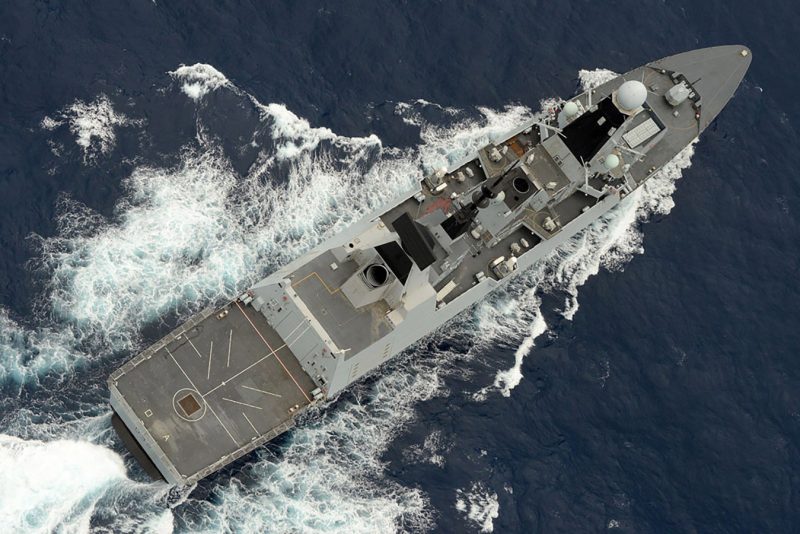
Above: Type 45 Destroyer featuring Permali’s safety net systems
With such unmatched capabilities, Permali has ignited several success stories since its inception. A prime example of the company’s proven track record would be the role it played in developing the aircraft cockpit door protection upgrade in the wake of the 9/11 tragedy. Being an industry giant, Permali had anticipated such a requirement as a result of an incident in December 2000 when a passenger stormed the cockpit of BA Flight 2069 from Gatwick to Nairobi and forced the aircraft into a dive before the crew was able to overcome the intruder and regain control of the aircraft. After September 2001, Permali immediately began working with aircraft manufacturers and airlines on solutions for preventing cockpit intrusion. Subsequently, the company developed a material, branded Permaglass XFS2, which is a lightweight composite armour solution capable of stopping handgun threats, whilst also meeting all aircraft interior flammability standards, including vertical burn, heat release, and smoke & toxic fume emissions.
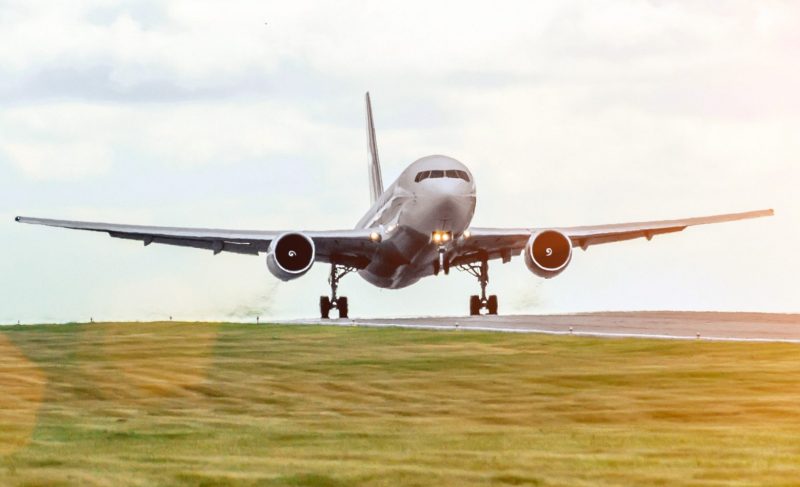
Above: Permali’s cargo liner and cockpit door armour features on the Boeing 737
The first airline to respond was Virgin Atlantic Airways who contracted Permali to supply retrofit cockpit door reinforcement for their aircraft in advance of the new regulations being published. This retrofit solution was supplied in October 2001, less than six weeks after the September 11 attacks took place. The company went on to work closely with Airbus and various aircraft interior manufacturers to supply solutions for Airbus, Boeing, McDonnell Douglas, Embraer and other aircraft, helping to protect thousands of aircraft and millions of passengers worldwide. Looking ahead, Permali plans to leverage its acquisition by market-leader Diamorph to expand its footprint in the U.S. and Eastern Europe as well as boost innovations in the development of materials capable of delivering cost reduction and sustainability.
Find out more about our Defence and Aerospace solutions.
To get in touch, email sales@permali.co.uk

